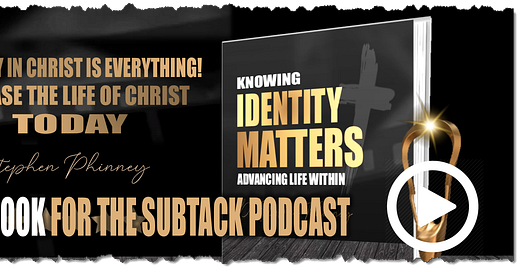Content: Understanding Biblical terminology is of paramount importance for several reasons.
Firstly, it allows us to comprehend the Scriptures more deeply. The Bible is a complex text with its unique language, which includes metaphors, symbols, and historical context. By understanding the terminology, we can better grasp the messages and teachings it contains.
Secondly, it helps us to communicate effectively about our faith. When we understand the terms used in the Bible, we can discuss and share our beliefs more accurately and confidently with others.
Lastly, understanding Biblical terminology can strengthen our relationship with God. It can enhance our prayer life, enrich our worship, and deepen our understanding of God’s character and His plan for humanity.
Understanding Biblical terminology is not just about intellectual knowledge; it’s about growing in faith, wisdom, and love for God and others. It’s about delving deeper into the Word of God and allowing it to transform our lives.
TOPIC DEFINITIONS
Introduction, Discipleship in the Making: Many self-proclaimed “Christians” put their entire Christian experience in the day of their Salvation. Once saved, they continue to function by using their own mind, will, and emotions. “Discipleship in the Making” is an overview of the purpose of the workbook. The mission of this workbook and final action will result from all the established lessons.
Godship: A simple term to describe what the Word defines as the number one problem in life — mankind attempting to function as their individualized god in the lives of self, others, and God. This includes suffering from divorce, suicide, eating problems, depression, or any other common problem with the self-life. Most of the time, it falls under the category of Godship -finding ways to fix the fix that God has fixed on you to stop fixing life through self-effort. Our ministry has learned that “playing God” helps us identify the real problem in each of the lives we reach out to. We have also learned that the most common consequence of Godship is “rejection” (Gen. 3:5).
Rejection is withholding love from self, others, and God. There are two types of rejection: overt and covert. Overt rejection is “obvious or known rejection, i.e., “I hate you.” Covert rejection is “subtle or unknown rejection, i.e., smiling on the outside while judging on the inside. Both forms of rejection are consequences of Godship applied by self or others. Without question, we believe that rejection leads to individuals attempting to find life “externally” (Romans 15:7).
External/Internal is an individual attempting to gain love, acceptance, and significance from external resources - idolatry. Since Godship sets up “self-rule,” the individual works to turn negative externals into positive ones, by making use of self-effort.
Problems are the direct consequences of self-life efforts. God then uses these problems to bring the believer to the end of their own resources, or self-life, to create a dependence on Christ’s Life from within. We believe that suffering is the key component to learning obedience to Christ Jesus, who lives in the born-again believer. It is these problems that reveal the person’s flesh (Heb. 5:8).
My Flesh exhibits patterns, reactions, and/or sinful actions that reveal (my) an individual’s self-life - trash left behind by the old nature. These fleshly reactions lead the believer to Life (Christ) or death (flesh) decisions. If the believer continues to choose self-life decisions, we believe God will bring this person to the end of himself through consequences formed by their own flesh. This, without question, leads the person to repentance (Luke 9:23).
Repentance is the process of confessing one’s sins, turning away from the self-life, and returning to a dynamic relationship with Jesus Christ from the inside out. This cannot be done effectively unless the Holy Spirit brings revelation to specific areas of the flesh that rise up against Jesus Christ. Once true repentance has occurred, the indwelt Christian can begin to apply their identity in Christ to all of life’s situations and circumstances (Psalm 119:59).
Identity Matters is an experiential embrace and an understanding of the believer’s identification with Christ in His death, burial, resurrection, and ascension - in daily living. This is what we call the Exchanged Life. When an individual has a born-again experience by faith, it means the Life of Christ comes and indwells the believer through the personhood of the Holy Spirit (the Spirit of Christ Jesus). The reality of this transformation allows for a true exchange of our old nature, or Adamic history, for that of the Nature of God through Christ. In knowing this, we become partakers of all that is true about Christ through His death, burial, resurrection, and ascension. Now the believer is in a position to appropriate their true identity, in Christ, and begin to live out that he is the righteousness of Christ (Galatians 2:20).
Righteousness is an indwelt believer’s expression, function, and lifestyle of releasing the Life of Christ from within. Once a born-again believer begins to appropriate their position in Christ, their condition is soon to change, simply by watching the evidence of His Life being manifested through their mind, will, and emotions. This means that when life’s circumstances are put before him, he can choose to release the Life of Christ to do the doing through him. This is a perfect setup for learning how to extend forgiveness to others (2 Corinthians 5:21).
Extending Forgiveness before God, in prayer, is forgiving anyone who has hurt you. Once the indwelt Christian gets to this point, he is usually quick to release all anger and pain before God, extending forgiveness to those who initially hurt him, and in many cases, is ready to seek forgiveness from others whom he has hurt (Matt. 5:22-24). Seeking Forgiveness is the process of going to an individual whom you have offended by action or reaction, seeking their forgiveness, and restoring the relationship when possible. Once the believer has extended forgiveness before God on how he was hurt, he usually is released to go and seek forgiveness for his part in the offense. We find that when a believer reaches this stage of discipleship, he begins to rest, abide, and walk in the Spirit in the truest sense.
Resting, Abiding, and Walking are the results of appropriating true forgiveness in all areas of life. It is living in the present, releasing the Life of Christ in you to be obedient to the Father through your mind, will, and emotions. When an indwelt believer gets to this point in growth, he can confront the self-centered view of life and embrace the challenge of releasing the mind of Christ from within. Resting in Christ is a perfect place to be in showing the Love Life of Jesus (Matt. 11:28).
Love Life is the pinnacle of the Christian Life. Once appropriating the steps mentioned above, the indwelt believer begins to embrace the two primary commandments spoken of by Christ: love the Lord with your whole heart and, secondly, love your neighbor as yourself (Mark 1:30-31). The result is when we obey, we have no condemnation. When we have no condemnation, we have confidence in God. Then, we receive whatever we ask through Christ (1 John 3:21-22).
Believers place great importance on understanding Biblical terminology, which they see as a key to unlocking a deeper comprehension of the Scriptures. They should believe that this understanding allows them to hear the Holy Spirit from within and reveal the Bible accurately, leading to a more profound grasp of God’s teachings and promises.
Regarding their identity in Christ, believers see themselves as new creations (2 Corinthians 5:17), redeemed from sin, and granted eternal life through faith in and through Jesus Christ. They must believe they are children of God (John 1:12), justified by faith, and heirs to God’s promises (Romans 8:17).
Understanding Biblical terminology helps believers to better comprehend these truths about their identity in Christ. For instance, terms like “redemption,” “salvation,” “justification,” and “sanctification” carry deep theological meanings that shape a believer’s understanding of their spiritual identity through Christ’s identity that manifests from the inside out.















Share this post